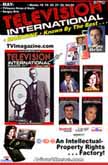top
top
top
|
• •Powell was born in Birmingham, Alabama and in 1985 graduated from the College of William and Mary on an ROTC Scholarship. Powell was an armored cavalry officer in the United States Army stationed in Amberg, Germany, but was unable to serve after sustaining severe injuries in 1987 during a training mission. • • He and his unit were traveling in a convoy on the autobahn. Powell was riding in a jeep at the time. Due to heavy rain, the jeep crashed and Powell was hurled skyward. After he hit the pavement, the jeep bounced and crashed down on Powell's midsection - flattening it, and bounced off. • • Half of Powell's pelvis had snapped off its rear anchor on the lower spine. In the front, it had ripped free of the cartilage connecting it to its other half. His bladder was torn and the urethra was ripped loose. Vertebrae were cracked and even his bones literally gushed blood. • • After initial attention from German emergency room doctors, Powell was flown to a U.S. Army hospital in Nuremberg. After being stabilized, he was flown to Washington, D.C. and admitted to Walter Reed Army Medical Center where he spent a year in recovery. To this day, his spine is still fused at its base, forcing him to walk with a slight forward pitch. • • After his rehabilitation he served as an expert advisor to the Secretary of Defense. Powell later received a Juris Doctor (J.D.) degree from the Georgetown University Law Center and clerked for the U.S. Court of Appeals. He then worked for a year and a half as a private attorney in the Washington office of O'Melveny & Myers, an L.A.-based firm, as well as in the antitrust division of the Justice Department for a year. 02• • As the chairman of the FCC, Powell led from his long-stated libertarian philosophy of deregulation of communications. Powell saw excessive regulation as stifling to technology innovation, and led the charge to open up markets in VoIP, Wi-Fi, and Broadband over Powerline (BPL). His Chicago school (economics) approach was that those players best able to perform in the market are large corporations, and that regulations restraining bad behavior is superfluous as the market itself will rectify the situation. • • Chairman Powell's tenure at the FCC was initiated with an unfortunate comment comparing the digital divide to a Mercedes Divide. His libertarian deregulatory policy coincided with a period of significant consolidation in the communications market. He advocated an updating of media ownership rules to reflect new communications technologies such as the Internet, a move that critics derided as increasing rampant media consolidation. He opposed applying telephone-era regulations to new Internet technologies, a move critics charged would deny open access to communications facilities. He articulated a policy of network neutrality, and in March 2005 fined Madison River Communications for blocking voice over IP applications (order text, PDF), the first-ever government action of its kind. • • His tenure will be most remembered for the Super Bowl XXXVIII halftime show controversy in which Janet Jackson's bare nipple was exposed on live-broadcast television. This high-profile incident increased public attention toward the FCC's enforcement of indecency rules which had already stepped up following Bono's use of an expletive on live TV. Howard Stern and other lesser-known shock jocks felt the sting of record fines and both the U.S. House and Senate separately approved legislation significantly increasing the amount of money a station could be fined for indecency. Although the legislation was not ultimately enacted, the climate in Washington became so grey that several TV stations across the country declined to air Saving Private Ryan on Veterans Day for fear of FCC fines. • • Some of Chairman Powell's initiatives have been challenged in federal court. Notably, the FCC's BrandX cable modem service proceeding, which declared cable modem should be free from telephone service regulations, was overturned in the Ninth Circuit case but is currently before the Supreme Court. The FCC's Broadcast Flag proceeding was overturned by the D.C. Circuit Court as an inappropriate exercise of FCC jurisdiction. The FCC's Media Ownership rules were likewise blocked by federal court and the television ownership cap set directly by the U.S. Congress. • • During his Chairmanship he was invited to speak at UCSD on January 26, 2004. The video is available on-line through the University of California, and is titled: FCC's Michael Powell: Charting the Future of the Telecom Industry. In the talk Powell speaks about the process of effecting change in Washington. He also speaks about Ultra-wideband and speculates on the effect it will have on telecommunications. • • Powell resigned as Chairman of the FCC on January 21, 2005. He said that he was glad to spend more time with his wife. He is currently on a lecture tour communicating his expertise in the field of telecommunication and government regulatory proceedures. SEE MORE STORY - VoIP Speech & Text On Property Seizures • • In a notable confrontation over the FCC's local telephone competition rules, Chairman Powell was outflanked by Republican Kevin Martin (FCC) who formed a majority with the FCC's two Democratic commissioners. Kevin Martin served the George W. Bush campaign in Florida. When Powell resigned, Kevin Martin was named the FCC's new Chairman. Kevin Martin has subsequently purged the FCC of many of Powell's staff. /// _________ 3. Editor's Note / 4. Related Stories Sam
Donaldson More Articles • Converging News 462005 / TeleCom BuyOuts, Spinoffs and Asset Seizure Boom Respectfully
Submitted
|
||||||||||||||||||||||||||||||||||||||||||||||||||||
|
Explorer |
40+110+570=720 |
||||||||||||||||||||||||||||||||||||||||||||||||||||

 Photo
Image665: Michael Powell, Troy Cory of TVI
Magazine and Powell at VoIP Q&A,
Powell and Sam Donaldson at NAB - 2005.
Sam Donaldson was the co-founder of TVI
Magazine - 1956.
Photo
Image665: Michael Powell, Troy Cory of TVI
Magazine and Powell at VoIP Q&A,
Powell and Sam Donaldson at NAB - 2005.
Sam Donaldson was the co-founder of TVI
Magazine - 1956.